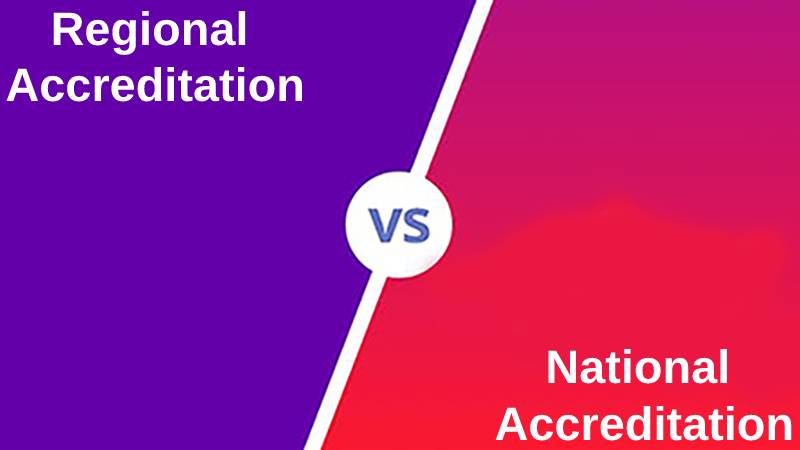
Online Master's degrees in school counseling are available for those who are interested in education. The typical curriculum takes three years with a 600-hour internship the final year. Online classes are flexible, so students can complete the 60-credit program at their own pace. Students who successfully complete the program are eligible for provisional New York State Certification as School Counselors. Before they can apply to permanent certification, they will need to have at least 2 years of experience working in a school setting.
Online master's degree for school counseling
A master's degree in school counselling will allow you to work in a variety of roles in K-12 schools as well as community agencies. This career path includes direct interaction with students, teachers, as well as administrators. The program also includes coursework in legal, social, or emotional issues. The program also includes professional counseling methods and evaluation. Graduates can be school counselors in non-profit educational institutions or state education agencies.
A master's degree in school counselling will give you the skills and ethical foundation to work with children or adolescents. A history of counseling will also be covered, as well as current trends. The role of school counselors within society, as well as ethical and legal issues, will be covered. The course will teach you how to adapt to social change and integrate multicultural perspectives in counseling.

An online master's program in school counseling is offered by a number of institutions. The most common accreditation for online school counseling programs is the Council for Accreditation of Counseling and Related Educational Programs (CACREP). Online courses are only available to schools that have been approved by CACREP. Depending on your state of residency, you may be required to have a master's degree to qualify for licensure in your state.
Program requirements
Your Master's program in school counseling will require you to complete at most 48 credit hours. The program's curriculum emphasizes learning through experiential opportunities. A 600-hour internship will be completed in a local school. This will allow you to practice your skills and get experience working with different populations. You will be able to become a licensed school counselor after completing the program. You'll be qualified to work as a community counselor, in college recruitment, and in education administration.
To become a school counselor you need to have a deep understanding of human development and the needs of diverse populations. To help students realize their potential, you will need to be able apply the latest counseling theories. Your program will give you the opportunity to interact with school counselors, and to learn from them. Furthermore, you will gain real-world experience conducting group counseling sessions within schools. Simulated counseling sessions are also available.
Salary
A Master's degree in school counseling may lead to a higher income than a bachelor's. A school counselor may earn as much as $50,000 annually, depending on his or her experience and where they work. A school counselor's average salary is higher in large cities than it will in smaller towns. Schools will pay more for school counsellors who can assist with curriculum development.

There are about 333,000 school counselors working in the United States. This number is expected to increase by approximately 16% by 2029. School counselors are compassionate professionals who offer counseling to students in difficult situations. A master's in school counseling is a great way of helping others while also advancing your career. But, school counseling is a very emotional job.
You may need to continue your training after earning your Master's degree in school counseling. Some states require an internship. Other states may require more training hours. The ASCA's School Counselor Directory will help you determine the exact requirements for your state. The directory includes information like the minimum GPA, internship hours and certification tests. This directory includes a link which will take you directly to the web pages of each state.
FAQ
How do I start eLearning?
If you don't already know how to create online courses, then it's best to start small. You could try creating a simple quiz or short tutorial.
Once you are proficient in this area, you can move on and tackle more difficult projects. If you're not familiar with HTML, then it would be better to start out by creating lessons using pre-built templates.
What is the Internet connection required for eLearning.
It depends on what you want to do. You don't need an internet connection if you are taking an online course. However, if you are going to use any kind of interactive features such as quizzes etc., then you need access to the web.
Why do many prefer taking eLearning courses?
These are the reasons. Firstly, they offer flexibility. There is no need to go to classes at a specific time or place. Secondly, you can learn online from anywhere. Thirdly, these courses provide an opportunity to learn without any distractions. They are also cost-effective.
What is the greatest challenge to online learning?
It is difficult to keep students interested in the course. How can you expect students to learn anything if they don't care about what you are teaching? Giving students many options is the best way to keep them focused. Giving students options means they have the ability to choose which modules, chapters, or exercises they'd like, and what tests, assignments, and websites they want.
What are the potential benefits of elearning for students as well as teachers?
E-learning has many benefits, including improved learning outcomes for students and teachers. It allows learners to access information anywhere and anytime they want. E-learning empowers educators to connect with their students using technology in a way that was not possible previously.
E-learning enables teachers to provide personalized instruction and feedback while also supporting student progress. This increases student motivation and engagement. Teachers can develop communication, collaboration and critical thinking skills through e-learning. Teachers can use it to improve their teaching by offering opportunities for reflection on other's experiences and self-reflection.
E-learning reduces the costs of training. In order to train students about a topic, teachers will need to purchase materials and books. However, you don't need to purchase duplicate material if it is easily available online.
How do you choose the right eLearning platform to use for your business?
There are thousands of eLearning platforms available today. Some are free and others are more expensive.
You need to ask questions when deciding between these options.
-
Do I want to design my own learning materials You have many options to create your eLearning courses using free tools. These tools include Adobe Captivate and Articulate Storyline as well as Lectora and iSpring Suite.
-
Do you offer ready-made courses in eLearning? Pre-packaged courses are available from a variety of companies. They range from $20 to $100 per course. Mindjet, Edusoft and Thinkful are the most popular.
-
Do I want a combination of both? Many people find that mixing their own materials with those supplied by companies produces the best results.
-
Which option would be best for you? It all depends upon your situation. You might want to create your own materials if you're new to eLearning. However, once you have gained experience, you may want to consider purchasing a pre-designed course.
Where is e-learning used?
E-Learning is an effective way for people who cannot attend face-to-face classes to learn at their own pace. It is also useful when you want to teach someone else how to do something.
E-Learning is very popular among businesses because it can be integrated into their training programs.
E-Learning in schools is growing in popularity because it saves time and money.
Statistics
- Interestingly, students' participation in online training grew by 142% in the past year alone, indicating how quality education and up-to-date teaching pedagogy are preferred by learners and working professionals to upskill across India. (economictimes.indiatimes.com)
- E-learning is intended to enhance individual-level performance, and therefore intend to use of e-learning should be predicted by a learner's preference for self-enhancement (Veiga, Floyd, & Dechant, 2001). (sciencedirect.com)
- Reliability, validity, and descriptive statistics (The Gambia). Empty CellCRAVEMeanSDACBICOEEHABHEHMPEPOPVSESITRAC0.770.635.080.842) in behavioral intention to use e-learning in The Gambia (53%) and the UK (52%), (sciencedirect.com)
- Hedonism incorporates intrinsic motivation, including novelty, challenge, excitement, and pleasure (Schwartz et al., 2012), which is likely to predict user perception of e-learning enjoyment. (sciencedirect.com)
External Links
How To
What are some examples of e-learning? What are the advantages of elearning?
There are many types and styles of elearning that you can choose from, such as:
-
Distance Learning - Distance learning is a program that can be completed entirely online.
-
Onsite Training - An onsite training program involves a group of participants coming together to receive training in person.
-
Virtual Classroom - A virtual class allows students to interact with teachers and experts through chat rooms, forums and other means.
-
Webinars: Webinars are live presentations that are delivered via the Internet. They allow you to connect with your audience in real time.
-
Self-Paced Courses: These courses don't require an instructor and can be completed at a pace that suits you. You can access the course from wherever you are at your convenience.
-
Interactive Tutorials (Interactive Tutorials) - These tutorials teach users how they can perform certain tasks.
-
Social Media Learning Platforms- Twitter and Facebook are great platforms for learning. Students can post ideas, ask questions, get feedback, and even share them with their peers.
-
Online Forums – Online forums can be a great place to discuss topics that are relevant to your area of study.
-
Podcasting: Podcasting is creating audio files which can be downloaded later and listened to.
-
Video Conferencing - Video conferencing allows two or more people to meet face to face virtually.
-
Mobile Apps: These are apps that are specifically designed for smartphones and tablets.
-
Online Quizzes- These online quizzes make it easy to find out what you know about a topic.
-
Discussion Boards – These online communities allow you to post messages, view messages from others and respond to them.
-
Website Content Management Software (CMS), - CMSs enable website owners and administrators to easily manage site content.
-
Blogging - Blogs are websites that allow readers to submit comments and opinions.
-
Wikis - Wikis are collaborative sites that allow multiple users to edit pages simultaneously.
-
Chat Rooms – Chat rooms allow users to communicate with one another online.
-
Email Lists: Email lists are groups or email addresses that you can use to send messages.
-
RSS Feeds- RSS feeds collect news articles from many sources and make them easy to read.